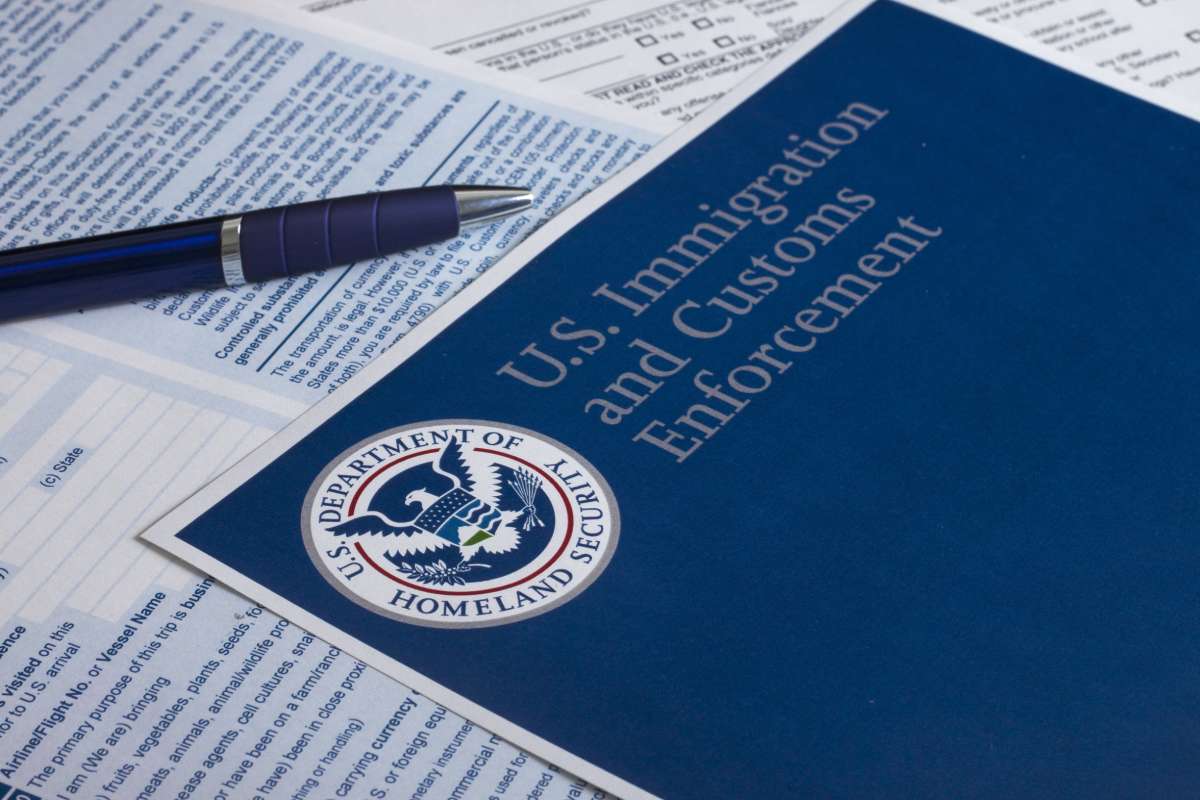
Immigration is a topic that gets a lot of attention. Still, there’s something important that many people don’t know about: immigration bonds. In this guide, we’ll take a closer look at what these immigration bail bonds are, why they’re significant for immigrants, and how they actually work.
What is an Immigration Bond?
An immigration bond is like a security deposit that makes sure immigrants show up for their immigration hearings. It’s there to guarantee that if someone gets detained by the Department of Homeland Security or Immigration and Customs Enforcement (ICE), they won’t just disappear and skip out on their proceedings. If they decide to bail on their court dates, the bond money gets taken away.
Why are Immigration Bonds Necessary?
The purpose of immigration bonds is to tackle a key problem in the immigration process. Bonds for immigration ensure that individuals going through removal proceedings can participate in the process without being stuck in detention for a long time.
Detaining every person involved in the immigration process would increase government expenses. Issues in detention facilities like overcrowding also influence the need for an immigration bond process.
Being detained by ICE might also violate the rights and well-being of the people detained. That’s why immigration bonds come in handy as a compromise. They ensure that immigrants show up for their proceedings without having to spend unnecessary time behind bars.
Types of Immigration Bonds
There are primarily two types of immigration bonds:
- Delivery bonds: This is the most common type of immigration bail bond. It ensures that the detained immigrant will attend all immigration hearings and adhere to a judge’s decision on their immigration status. Once this bond is posted, the immigrant is released from custody, allowing them to spend time with their families and consult an immigration attorney in a more conducive environment.
- Voluntary Departure Bond: In certain situations, a judge may offer immigrants the opportunity to voluntarily leave the country within a specific timeframe at their own expense. It’s important to note that this immigration bail bond is refundable. Once you provide evidence of your departure from the United States. However, if you are unable to depart as agreed upon, unfortunately, the immigration bail bond will be forfeited.
How is the Immigration Bond Amount Determined?
The bond amount is set by ICE or an immigration judge. Several factors influence this decision:
- Flight Risk: In cases where there is a concern that an individual may not show up for their scheduled hearings, it may be necessary to set a higher bond amount. This helps ensure their presence and cooperation throughout the legal process.
- Criminal Record: Immigrants with criminal histories pose higher risks, which can result in higher immigration bail bond amounts.
- Family Ties in the U.S.: If someone has family in the United States, it could make them less likely to disappear. This could mean getting a lower bond amount.
- Employment Status and Duration: Having a steady job can show that you’re connected to the community, and this could lead to a lower the immigration bond amount that you might get.
However, if ICE or an immigration judge determines that a bond is necessary, it’s important to start considering your options. We understand that this can be a challenging situation, but we’re here to support you and help you navigate through it.

What Are the Chances of Getting an Immigration Bond?
The chances of getting an immigration bail bond depend on a number of factors. This includes your background, the nature of your case, flight risks, and your employment status. It’s important to consider that some immigrants, depending on their circumstances, may not be eligible for bond. Even with this in mind, you should still review your options to see if you are eligible.
How to Pay an Immigration Bond
Once the bond amount has been determined, it can be paid by individuals who have legal status in the United States. This includes both U. S. citizens and green card holders. The payment is usually made directly to ICE, and there are two main methods for making the payment:
- Cash Bond: When it comes to paying the immigration bond amount, you have a few options available. You can choose to pay in full through a money order, cashier’s check, or U. S. bonds or notes. You can also pay an immigration bond online. It’s important to note that after the immigration proceedings are completed and the immigrant has met all the bond requirements, the money will be refunded to the person who originally posted it.
- Surety Bond: If someone cannot afford to pay the full immigration bail bond amount, they have the option to collaborate with an immigration bond agent. This helpful agent will assist in posting the bond on behalf of the immigrant, typically for a percentage of the total bond amount. It’s important to note that this fee is non-refundable, unlike the cash bond.
How Long Do You Have to Pay an Immigration Bond?
There is no strict deadline for paying an immigration bond when ICE or an immigration judge. The main reason you should pay the bond quickly is to get a quick release from detention. Dealing with immigration bond payments and the whole release process can be quite time-consuming. That’s why it’s helpful to make the payment as soon as possible, to avoid any unnecessary bureaucratic delays that might occur.
Potential Risks and Challenges
It’s important to keep in mind that if an immigrant doesn’t meet the conditions of their bond, such as missing a court hearing, the immigration bail bond money is unfortunately lost. Additionally, you should work with immigration bond agents that are reputable and experienced.
Work with Liberty Immigration
Immigration bonds serve as a safety net to ensure everything stays fair and above board during the immigration process. It’s like a way to keep things in check and make sure everyone follows the rules.
Need an immigration bond? Get help within minutes.